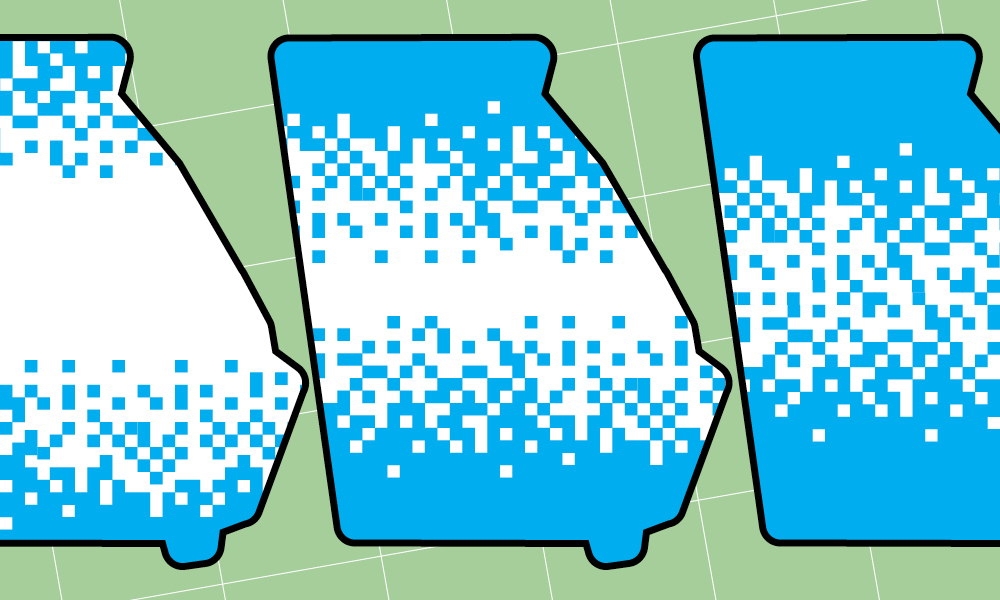Welcome! We’re so glad you want to be a part of this alliance to ensure that the infrastructure plan implementation equally benefits minority communities and companies in Georgia.
The bottom line: The point of what’s presented here is to identify the priorities of the infrastructure plan so that companies can determine whether they have the capabilities to do the work needed to be done. The final figures may look different, but the general goals should remain the same.
Let’s dive in.
March edition | 2022
Greetings Alliance Members – Federal Funding of Infrastructure Projects is underway. Let’s get ready to work! 🛠️
February was an exciting month of announcements as the federal government officially turned on the spigot to fund several infrastructure projects. Georgia is well positioned to take advantage of these dollars becoming available. GMI Alliance will continue to follow these transformative projects and share information as it progresses from the federal level to Georgia.
Scroll down for GMI Alliance’s five quick updates.
Top of mind: A big NOFO
The U.S. Department of Transportation (USDOT) has published a notice of funding opportunity (NOFO) for $1.5 billion in grant funding through the Rebuilding American Infrastructure with Sustainability and Equity (RAISE) discretionary grant program.
By the numbers: The figure represents a 50% increase in available funds compared to 2021 with at least $15 million in funding guaranteed to go towards projects located in “areas of persistent poverty” or “historically disadvantaged communities.”
RAISE projects are selected based on merit, and as a result of the infrastructure law, 2022 applications will also be evaluated on mobility and community connectivity.
In the review process, USDOT will consider
- universal design and accessibility for travelers
- how proposals increase mobility for freight and supply chain efficiency
Consistent with last year’s process, the department is encouraging applicants to consider how their projects can address climate change, ensure racial equity, and remove barriers to opportunity. Applicants are also encouraged to consider how their projects can create workforce development opportunities in their communities.
You can view the NOFO here. The deadline for applications is 5 p.m. EST on April 14, 2022, and selections will be announced no later than August 12, 2022.
Electric vehicle charging network is off and running
In a step towards making electric vehicles (EV) the norm, nearly $5 billion in initial funding has been made available to start building America’s first nationwide EV charging network.
The program helps states create a network of charging stations along designated alternative fuel corridors, particularly along the interstate highway system.
By the numbers: Under the National Electric Vehicle Infrastructure (NEVI) formula program, the total amount available to states is $615 million, however, states must submit an EV infrastructure deployment plan before they can access capital.
Georgia will receive a little more than $19 million in NEVI in funding for FY 22 – plus, U.S. Rep. Lucy McBath recently announced that more than $134 million will be made available over the next five years.
EV infrastructure deployment plans must describe how each state intends to use its share of NEVI funds consistent with Federal Highway Administration (FHWA) guidance because plans are expected to build on alternative fuel corridors that nearly every state has designated over the past six years.
The new Joint Office of Energy and Transportation will play a key role in implementing the NEVI program by providing direct technical assistance and support to help states develop their plans before they are reviewed and approved by FHWA.
A second, competitive grant program designed to further increase EV charging access in locations throughout the country, including in rural and underserved communities, will be announced later this year.
Broadband expansion in Georgia
Georgia has taken a giant step toward resolving the digital divide between its urban and rural communities within preliminary broadband project awards. The preliminary awards target households and businesses in areas deemed unprofitable for internet companies to provide connection throughout the state.
Grant funding made available through the American Rescue Plan Act (ARPA) will be provided to 49 recipients to expand access to faster, more reliable broadband in 70 Georgia counties.
The awards represent an investment of more than $738 million in the state’s broadband infrastructure when matching funds are contributed.
Federal internet funding from the ARPA represents about 10% of the total $4.8 billion in COVID-19 relief money allocated for Georgia and is consistent with broadband expansion initiatives laid out in the infrastructure law.
Many of the grantees represent public-private sector partnerships, and most of the recipients are electric membership cooperatives or local governments that will partner with internet service providers.
See the full list of recipients here.
Georgia DOT taking public comments on major highway improvement plans
The Georgia DOT hosted a virtual public hearing for the I-285/I-20 East Interchange Project (P.I. No. 0013915) on Monday, Feb. 7. The meeting provided the public with an opportunity to review and comment on executive summaries submitted in response to the request for proposals for the final design and construction of the interchange.
As currently defined, the project will reconstruct and widen several interstate system-to-system ramps at the interchange and add a combination of collector-distributor and auxiliary lanes along I-20 east of the interchange and I-285 north of the interchange.
- Improvements to the heavily traveled interchange will reduce congestion and enhance safety.
The project is anticipated to start construction in 2023 and reach substantial completion by 2026.
Why it matters: This is all part of the department’s Major Mobility Investment Program which will create additional capacity, improve freight movement, provide operational improvements and efficiencies, enhance safety and decrease travel times.
Proposers’ executive summaries are available online for review and comment until Tuesday, March 8 here.
Atlanta primed to receive federal infrastructure funds
Although the City of Atlanta has not received an estimate for its portion of the $12.3 billion infrastructure funding planned for Georgia, but U.S. Rep. Nikema Williams has promised that Atlanta will get its fair share.
- That will include a $1.7 billion investment in Georgia’s bridges and $158.6 million for its water infrastructure and lead pipe replacements.
Hartsfield–Jackson International Airport will receive $92.5 million to maintain its efficiency, in addition to $6 million for improvements to sewer systems in the adjacent southeast Lakewood Heights neighborhood.
Atlanta also plans to leverage funding to support job training opportunities for residents who want to help renovate its streets and bridges, including:
- the heavily-used Marietta Road bridge, adjacent to the North Avenue ATLDOT facility
- Donald Lee Hollowell Parkway, described as one of the city’s most dangerous roadways for the last three decades.
The GMI Alliance, an initiative of Ohio River South, is a consortium of minority and majority-owned infrastructure companies and service providers working to position Georgia and themselves for federal infrastructure funding to complete critical projects. Together, we plan to bring increased attention to Georgia’s leading role in the nation’s economy by highlighting our diverse business environment as a strategic advantage.


